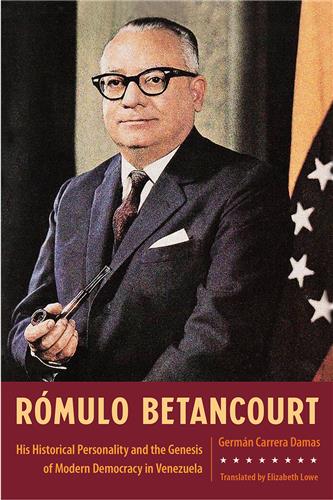Writing the New World
The Politics of Natural History in the Early Spanish Empire
Mauro José Caraccioli
Hardcover: $80.00
Paper: $28.00
Paper: $28.00
This book is freely available in an open access edition thanks to TOME (Toward an Open Monograph Ecosystem)—a collaboration of the Association of American Universities, the Association of University Presses, and the Association of Research Libraries—and the generous support of Virginia Tech.
International Studies Association Theory Section Best Book Award
Finalist, Environmental Humanities Category, ACLS Open Access Book Prize and Arcadia Open Access Publishing Award
“An open and compelling invitation for future interdisciplinary investigation into this complicated moral and environmental tapestry and its many weavers.”—H-Net
“Debates in sixteenth-century Spain about human rights, sovereignty, empire, and just war informed the way these concepts developed in the centuries that followed Columbus’s landfall. . . . Writing the New World . . . adds a fascinating missing piece to this intellectual history, further solidifying the place that Latin America, its history, and its nature has in the story of Western political theory.”—Perspectives on Politics
“Reflects the enduring relevance of historical and humanistic approaches to politics and the environment, while perhaps signaling a potential means of revitalizing the field of political theory though transdisciplinary engagement with matters of empire, race, class, and environment in a time of planetary crisis.”—New Political Science
“Provid[es] a concise overview of some of the important milestones of Spanish natural history writing during the sixteenth century. . . . Fruitfully bring[s] its sixteenth-century materials into conversation with current theoretical perspectives derived from environmental studies that may provide auspicious starting points for further discussions.”—New West Indian Guide
“This book is an important step towards the inclusion of Spanish scholarship and the environment into the canon of European political tradition. . . . Writing the New World should prompt larger reflections on the connections between environment and society in our current moment of generalized climatic crisis.”—Journal of Arizona History
“A lucid, forceful, and beautifully written study of faith, nature, and politics in the early modern Hispanic monarchy. This is an important book that urges political philosophy to deal more squarely with empire’s complicated historical relationship to ecology and knowledge.”—John Slater, author of Todos son hojas: literatura e historia natural en el Barroco español
“A compelling account of the scholarly Spanish churchmen whose natural histories of the New World shaped early modern empires and Enlightenment science and whose influence on our thought only gains importance as our world warms.”—Joshua Simon, author of The Ideology of Creole Revolution: Imperialism and Independence in American and Latin American Political Thought
In Writing the New World, Mauro Caraccioli examines the natural history writings of early Spanish missionaries, using these texts to argue that colonial Latin America was fundamental in the development of modern political thought. Revealing their narrative context, religious ideals, and political implications, Caraccioli shows how these sixteenth-century works promoted a distinct genre of philosophical wonder in service of an emerging colonial social order.
Caraccioli discusses narrative techniques employed by well-known figures such as Gonzalo Fernández de Oviedo and Bartolomé de Las Casas as well as less-studied authors including Bernardino de Sahagún, Francisco Hernández, and José de Acosta. More than mere catalogues of the natural wonders of the New World, these writings advocate mining and molding untapped landscapes, detailing the possibilities for extracting not just resources from the land but also new moral values from indigenous communities. Analyzing the intersections between politics, science, and faith that surface in these accounts, Caraccioli shows how the portrayal of nature served the ends of imperial domination.
Integrating the fields of political theory, environmental history, Latin American literature, and religious studies, this book showcases Spain’s role in the intellectual formation of modernity and Latin America’s place as the crucible for the Scientific Revolution. Its insights are also relevant to debates about the interplay between politics and environmental studies in the Global South today.
Mauro José Caraccioli is assistant professor of political science and core faculty in the Alliance for Social, Political, Ethical, and Cultural Thought (ASPECT) at Virginia Tech.
- Sample Chapter(s):
- Table of Contents
- Excerpt
There are currently no reviews available












